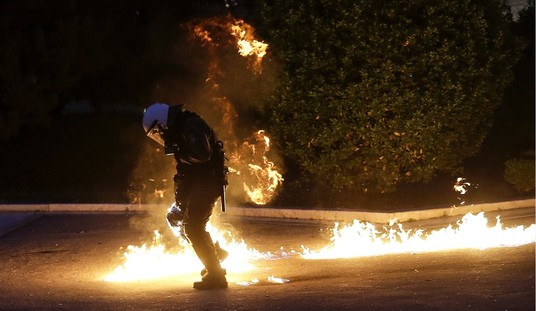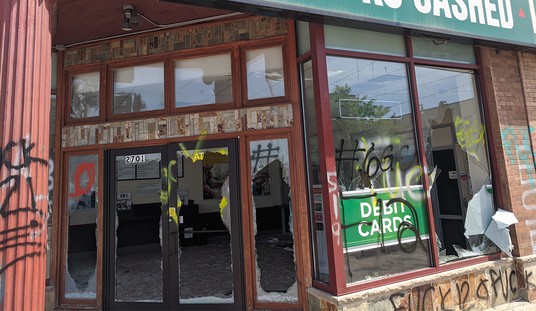Bob Levinson
A former FBI agent and 69-year-old father of seven, Bob Levinson was working as a private detective on a cigarette smuggling case on Kish Island, an Iranian resort port in the Persian Gulf with looser entrance requirements. He disappeared in March 2007; a hostage video of Levinson was sent to the family in late 2010, and in April 2011 they received photos of him. They released the photos in January 2013 out of frustration that not enough was being done by the government.
When five U.S. hostages were returned from Iran at the time of the implementation of the nuclear deal in January 2016, Bob Levinson was not among them. His frustrated family started the hashtag #WhatAboutBob as the other captive Americans returned home. Levinson is the longest-held hostage in U.S. history and has five grandchildren he’s never met, including a toddler named Bobby who has battled stage 2 lymphoma.
The United Nations Working Group on Arbitrary Detention found that it’s “an established fact that Mr. Levinson was arrested without any legal ground, in violation of his rights as established in article 9 of the Universal Declaration of Human Rights and article 9 of the Covenant, and has been detained since then.”
“The UN has been more forceful on securing his return than his own government that sent him there,” his son Doug Levinson told the House Foreign Affairs Subcommittee on the Middle East and North Africa in July, noting that “we are hopeful with this new administration, but we’ve heard these promises before — we need action.”
Austin Tice
As the 2011 Arab Spring protests drew violent reprisals from President Bashar al-Assad that spiraled into civil war, Austin Tice reported from Syria for McClatchy Newspapers, the Washington Post, and other outlets. His background as a U.S. Marine Corps infantry officer enabled him to get close to the fighting as a war correspondent, and he quickly earned the respect of the Free Syrian Army fighters.
“Spent the day at an FSA pool party with music by @taylorswift13. They even brought me whiskey. Hands down, best birthday ever,” reads Austin’s last tweet, on Aug. 11, 2012.
Tice disappeared as he was trying to travel to Lebanon.
On Sept. 26, 2012, a video titled “Austin Tice still alive,” showing the journalist blindfolded and praying to Jesus, was posted on a pro-Assad website, and raised alarms about the Syrian government’s potential role in his capture. The Assad regime has denied any involvement.
The Tice family said in a July statement that they are “keenly aware of his empty chair, sorely missing his big hugs and wonderful laugh. In addition to so many birthdays and holidays, he was absent from the weddings of two of his sisters, and as a doting uncle he has yet to meet their two beautiful new babies.”
Andrew Brunson
A North Carolina pastor who made Turkey his home for more than two decades, Andrew Brunson was charged by the Turkish government with attempting to destroy the country’s constitutional order and overthrow their parliament. Brunson has been sitting behind bars since last year, swept up in President Recep Tayyip Erdoğan’s engulfing purge of perceived enemies. He has lost more than 50 pounds in custody.
Brunson and his wife, Norine, raised their family in Turkey and ministered through the Protestant Izmir Resurrection Church in the Aegean coast city. In October 2016, they found a note on their door telling them to report to the migration management office for what they thought would be a visit connected to their visa renewal. Instead, officials detained the couple.
Norine was eventually released and allowed to stay in the country. The pastor, though, was sent to jail in December on a hazy accusation of “membership in an armed terrorist organization.”
“I’m still waiting for my dad to walk me down the aisle,” his daughter Jacqueline told the U.S. Helsinki Commission.
Serkan Gölge
A NASA scientist working on the U.S. mission to Mars, Serkan Gölge was visiting his parents in Turkey in July 2016 when he was arrested in Erdoğan’s engulfing post-coup sweeps. Turkish authorities, claiming his NASA security card meant he has CIA links, threw him in solitary confinement and only let the physicist be seen by a U.S. consular official this October. Family later discovered through court documents that Serkan’s sister’s brother-in-law had been the tipster who turned in the NASA researcher over a family land dispute.
He is married with two sons and has been a U.S. citizen since 2011. He’s allowed to see his children once every two months at the prison, says his wife, Kubra. “Sometimes I feel like it is a dream and my life will come back when I wake up. Other times I think it will never come back,” she said. “From now on, I do not think bad things only happen to other people. It can happen to me, to us.”
Kevin King
Professor Kevin King, 61, and his Australian colleague Timothy Weeks, 49, were driving near American University in Kabul on a Sunday night in August 2016 when their SUV was stopped by five gunmen dressed in Afghan military uniforms. They are believed to be held by the Haqqani network, allies of the Taliban and al-Qaeda.
In January, the Taliban released a video of a distraught King and Weeks pleading with the new U.S. president for their release. “Donald Trump, sir, I ask you, please. This is in your hands. I ask you please to negotiate with the Taliban. If you do not negotiate with them, we will be killed,” Weeks said.
At the end of October, Taliban spokesman Zabihullah Mujahid released a statement noting King “has a dangerous heart and kidney disease… if they insist on delaying this matter and the illness of Kevin King becomes incurable or he loses his life, the Islamic Emirate will not be held responsible due to the fact that the opposition does not want to bring an end to the issue at hand and does not consider the life of its nationals important.” There has been no update since.
Baquer and Siamak Namazi
Siamak Namazi, a businessman who was raised in the United States and had been working out of Dubai, was arrested in October 2015 while visiting a friend in Tehran. Namazi hails from a prominent Iranian family; his father used to be governor in Khuzestan province and a UNICEF official, and the family immigrated to the U.S. in 1983. His father, Baquer Namazi, 81, was arrested in Tehran in February 2016 and also taken to the city’s notoriously brutal Evin prison.
In October 2016, the Namazis were sentenced to 10 years in prison “for spying and cooperating with the U.S. government against Iran.” Iran said the Namazis weren’t included in the January 2016 hostage swap with the Obama administration because their seizure was “not political.”
“A second father’s day which I am kept apart from my father and engulfed with the darkest side of humanity…I must take solace in my father’s unshakable faith in humanity even now while he is held victim of this inhumanity,” Babak Namazi, who has been relentlessly lobbying for the release of his brother and father, posted on his Facebook page in June. “I draw strength from one my father’s favorite quotes of Gandhi whom my father greatly admires and follows his teachings: ‘You must not lose faith in humanity. Humanity is an ocean; if a few drops of the ocean are dirty, the ocean does not become dirty.'”
Nizar Zakka
Nizar Zakka, a Lebanese-American and permanent U.S. resident, is secretary-general of the Dupont Circle-based IJMA3 group, which lobbies for the information and communications technology industry in the Middle East. Zakka earned degrees from the University of Texas after graduating from the Riverside Military Academy in Gainesville, Ga., in 1985. He used to work as a software engineer at contractor Kellogg, Brown & Root in the early ’90s.
Zakka visited Tehran at the invitation of the Iranian government to speak at a conference on women’s entrepreneurship and employment, and was seized as he tried to catch a return flight in September 2015. The State Department even helped fund his trip, according to his colleagues.
He was sentenced to 10 years on espionage charges a year after his arrest, and has undertaken lengthy hunger strikes in protest of his detention. In August, Zakka was notified that his appeal was denied.
“If you’re traveling to Iran on business or pleasure, let my case be a lesson and a warning to others considering visits to Iran,” Zakka said then in a statement issued through his U.S. attorney, Jason Poblete. “I’m not the only one. If you value your freedom and are a foreigner, Iran is not safe for you. Don’t come here.”
“I was invited to speak at an Internet ICT conference by Vice President Shahindokht Molaverdi,” Zakka added. “On my way to the airport I was kidnapped, locked up in Evin Prison, and was falsely charged with espionage. I am innocent and the Iranians know it.”
“There is no rule of law in Iran, and I am a victim of this, especially if you’re a foreigner. I will continue to speak out for freedom and justice.”
Xiyue Wang
Princeton University student Xiyue Wang, a fourth-year doctoral candidate in late 19th and early 20th century Eurasian history, was arrested in August 2016 after Iran said he was scanning large quantities of documents and sending digital scans to the State Department, Princeton and Harvard. His doctoral adviser said Wang was scanning historical documents — a “normal, standard scholarly practice” — that were about 100 years old. Wang got his bachelor’s degree at the University of Washington and studied at Harvard before Princeton. He speaks English, Mandarin, Persian, Turkish and Pashto.
He and his wife, Qu Hua, have a 4-year-old son. “Only the U.S. government can sort this out, only the U.S. government can help us,” she told NBC News last month. “…He is extremely stressed, he has depression and he attempted to commit suicide, and he had multiple diseases.”
“I don’t know how long this will last, but every month I have hope that he can come home at any time, that they would automatically release him quietly,” Qu added. “But my hope of his return has been shattered time and time again throughout the past year because all of this.”
Karan Vafadari
A dual national who was born in Tehran and graduated from New York University before receiving his MBA at UCLA, Karan Vafadari owns an art gallery in Tehran along with his Iranian wife, Afarin Niasari. When Niasari was attempting to fly to Italy for an art project in July 2016, she was detained by Islamic Revolutionary Guard Corps agents who told her to call her husband, then detained Vafadari as well when he came to the airport as asked. They were sent to Evin prison.
Last August, prosecutors accused the couple of serving alcohol in their home and throwing mixed-gender parties for foreign dignitaries; as a Zoroastrian, Vafadari technically should not be subject to those Islamic rules under Iranian law. In March, they were also charged with running a house of vice and espionage along with “attempting to overthrow the Islamic Republic of Iran.” Iranian officials have also declared the couple’s civil marriage invalid, as they married in Nevada in 2002 and Niasari was born into a Muslim family.
Vafadari’s sons and a daughter live in the United States. “What Karan’s three children, Aundia, Cyrus and myself want is the immediate release of Karan and Afarin as we know they are kind and nice, and are certain they are innocent and have committed no crime,” his son Maziar wrote in an April open letter.
Vafadari wrote in an August letter that his interrogator told him the day when religious minorities in Iran no longer had to hang a sign outside of their shops denoting they weren’t Muslim was the “worst day of his life.”

Kim Dong Chul, a U.S. citizen detained in North Korea, is escorted to his trial April 29, 2016, in Pyongyang. (AP Photo/Kim Kwang Hyon)
Kim Dong Chul
Kim Dong Chul, a businessman and naturalized U.S. citizen who previously lived in Fairfax, Va., was arrested in North Korea’s special economic zone in October 2015 and accused of spying for the South Koreans, which Seoul denied. Kim, in his mid-60s, was sentenced to 10 years of hard labor.
Tony Kim
Tony Kim, also known as Kim Sang-duk, was a professor at China’s Yanbian University of Science and Technology who had been visiting to teach at Pyongyang University of Science and Technology for a period of several weeks. Kim had also been a humanitarian aid worker in North Korea. He and his wife were arrested this April as they tried to fly out of the country; she was released while he was detained and accused of committing hostile acts.
Kim Hak-Song
Kim Hak-Song was working in agricultural development at Pyongyang University of Science and Technology, managing experimental research to address the country’s food shortage. He was arrested in May. Like Kim Dong Chul, Tony Kim and former hostage Kenneth Bae, Kim Hak-Song is a Christian.
Joshua Holt
Joshua Holt, 24, of Riverton, Utah, met a fellow Mormon, Thamara Caleño, 25, online and last year traveled to her home country to get married. The couple settled down in Caracas while waiting for a visa appointment for Caleño and her two young daughters to get approval to come to the United States.
Police raided her apartment on June 30, 2016, claiming they found illegal weapons and that the couple were linked to an opposition paramilitary gang. Thamara’s mother, María Caleño, told NPR that she witnessed the raid and saw police slip weapons into Holt’s luggage before declaring they found the weapons.
A witness told the Miami Herald that police were conducting door-to-door searches when they took issue with Holt filming their activities with his phone. Two hours later, she said, masked officers who may have been military intelligence came back with weapons, “found” the weapons and arrested Holt’s wife as well. Both are now charged after being held for 18 months.
On a Facebook page calling for his release, the family posted audio of a phone message in which Holt says his health is poor.
“I don’t feel very good,” he said, describing gastrointestinal problems. “I’m very dizzy and I can’t think. My stomach hurts… and I don’t know what to do.”




















Join the conversation as a VIP Member